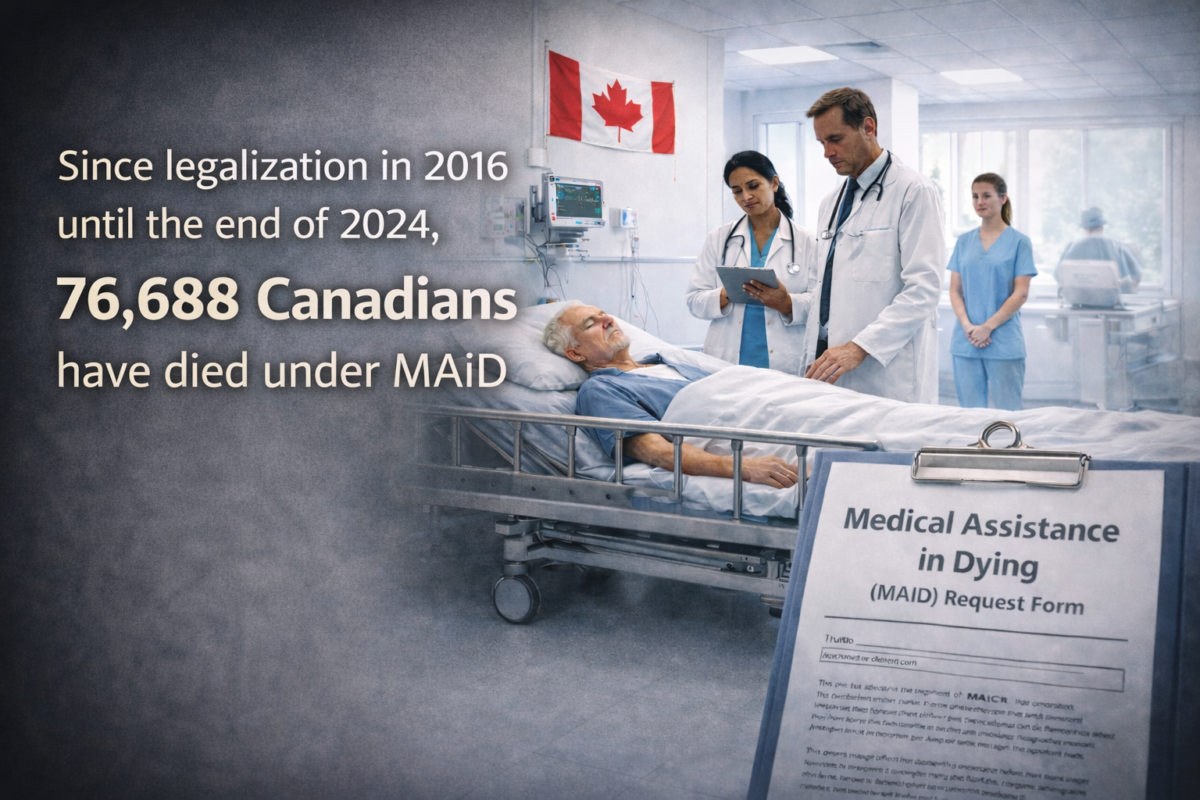An Inconvenient Study
Vaccinated Kids are 2.5X More Likely to Develop a Chronic Condition
By Christie Lynn
In 2016, journalist Del Bigtree issued a challenge to one of the world’s most prestigious medical institutions: to conduct the most thorough study comparing vaccinated versus unvaccinated individuals. The head of infectious disease at Henry Ford Health accepted the challenge, determined to prove Bigtree wrong.
The study was completed in 2020, but the results were not what the authors expected. Far from reinforcing the safety of vaccines, the findings were so alarming that Henry Ford Health’s leadership allegedly buried them—locking the data away with no intention of ever letting the public see. Until now.
The Study
Titled “Impact of Childhood Vaccination on Short and Long-Term Chronic Health Outcomes in Children: A Birth Cohort Study,”1 the research examined the medical records of 18,468 children born between 2000 and 2016, all insured through Henry Ford’s Health Alliance Plan.
The study was led by Dr. Marcus Zervos, a highly respected physician, pro-vaccine advocate, and head of infectious diseases at Henry Ford Health. The team supplemented clinical and insurance data with information from Michigan’s state immunization registry.
This wasn’t just any analysis. It was the first-ever large-scale, non-survey-style, non-independently run study comparing vaccinated vs. unvaccinated individuals. The first of its kind ever conducted by a major medical institution using electronic health records—the gold standard for real-world outcomes. Unlike the largest prior thorough American study before this one (an independently done study by Hooker & Miller that showed vaccinated children were sicker), this study was not funded by any so-called “anti-vax” groups, nor were its authors considered to be vaccine-sceptics –the funder and the authors were quite the opposite. If any study could settle the vaccine debate once and for all, it should have been this one.
Don’t lose touch with uncensored news! Join our mailing list today.
The Results
The findings were stark:
- 57% of vaccinated children developed at least one chronic health condition within ten years.
- By contrast, only 17% of unvaccinated children were diagnosed with a chronic condition.
The authors wrote:
“Exposure to vaccination was independently associated with an overall 2.5-fold increase in the likelihood of developing a chronic health condition, when compared to children unexposed to vaccination. This association was primarily driven by asthma, atopic disease, eczema, autoimmune disease, and neurodevelopmental disorders.”
Key Findings
Compared to unvaccinated peers, vaccinated children had:
- 329% more asthma
- 203% more atopic disease
- 496% more autoimmune disease
- 453% more neurodevelopmental disorders
- 228% more developmental delays
- 347% more speech disorders
The Backstory
Attorney Aaron Siri of the Informed Consent Action Network says he and Bigtree first met with Zervos in 2017 to propose the study. Siri recalls:
“Dr. Zervos looked us right in the eyes and assured us that he was a man of integrity and would publish the results, whatever the finding.”
However, when Siri finally received a copy of the study in 2020, Zervos told him Henry Ford Health had blocked its publication. According to Siri, Zervos and one of the co-authors admitted that they feared losing their jobs if they submitted it.
The Senate Hearing
The suppressed study first reached the public record during sworn testimony before the U.S. Senate’s Permanent Subcommittee on Investigations on September 9, 2025. Chairman Senator Ron Johnson (R-Wis.) opened with a blistering statement:
“It is simply no longer possible to believe much of the clinical research that is published, or to rely on the judgment of trusted physicians or authoritative medical guidelines,” Johnson said, quoting Dr. Marcia Angell, former editor of the New England Journal of Medicine.
Johnson called the Henry Ford study “high-quality” and “suspiciously withheld.”
Siri testified:
“The only real problem with this study—and why it wasn’t submitted for publication—is that its findings did not fit the belief and the policy that ‘vaccines are safe.’ Had it shown vaccinated children were healthier, it would have been published immediately. But because it found the opposite, it was shoved in a drawer.”
When Senator Richard Blumenthal (D-Conn.) asked why it took five years for the study to surface, Siri replied:
“My hope has always been that the scientists would publish it. We’ve tried to persuade them many, many times, so it could go through peer review.”
The Response
Aaron Siri disclosed the study in his 2025 book Vaccines, Amen: The Religion of Vaccines. When The Epoch Times asked Zervos why the study wasn’t published, his only reply was: “Can you tell me what book this appeared in?” He and his co-authors offered no further comment.
Henry Ford Health confirmed the study was real, but claimed it was rejected because, as they explained in an email to The Epoch Times, “This report was not published because it did not meet the rigorous scientific standards we demand as a premier medical research institution. Data has consistently shown vaccinations are a safe and effective way to protect children against potentially life-altering diseases.”
The Detroit Free Press also reached out. In an emailed statement, a spokesperson for Henry Ford Health said the health system “was unaware this long-rejected and unvalidated draft was being talked about or had somehow been shared.” Henry Ford then proceeded to explain that the study was not published due to the following six flaws:
- Differences in demographics between vaccinated and unvaccinated groups (gender, race, prematurity)
- Smaller sample size for the unvaccinated group.
- Unequal follow-up times (unvaccinated kids visited the doctor less)
- Focus on “any vaccines” versus “specific vaccines.”
- Lack of consideration about the number of vaccines and their timing.
- Shifting vaccine guidelines over the years.
But with a sample size as large as over 18,000 children, most of these issues could have been corrected with standard statistical adjustments—something just about every major epidemiological study does.
For example, one of their points was that there are differences in the gender demographics –more males in the unvaccinated group compared to the vaccinated group. This is a routine issue in observational research: researchers can simply apply weighting, stratify by sex, or adjust the analysis accordingly. At worst, they might exclude a subset of participants to balance the groups. Far from fatal flaws, these are standard challenges that competent analysts resolve as a matter of course.
Their strongest argument was point three, that vaccinated children might have seemed less healthy simply because they visited doctors more often. Yet even after excluding children with infrequent doctor visits, the Henry Ford team still found elevated risks among the vaccinated—results that held steady at one, three, and five years of follow-up.
Why It Matters
The Henry Ford cohort study may be the most consequential vaccine safety study ever conducted. Its sheer size, reliance on electronic health records, and rigorous design set it apart from anything done before.
And yet, it was hidden from the public.
For decades, parents have asked for a transparent, large-scale comparison of vaccinated and unvaccinated children. This study finally provided one, and its findings directly challenge the narrative that vaccines are universally safe. The results should have sent shockwaves through public health agencies, policymakers, and the medical community.
That is why it was buried.
And that is why it matters.
The documentary “An Inconvenient Study” premieres October 12, 2025 at aninconvenientstudy.com.











